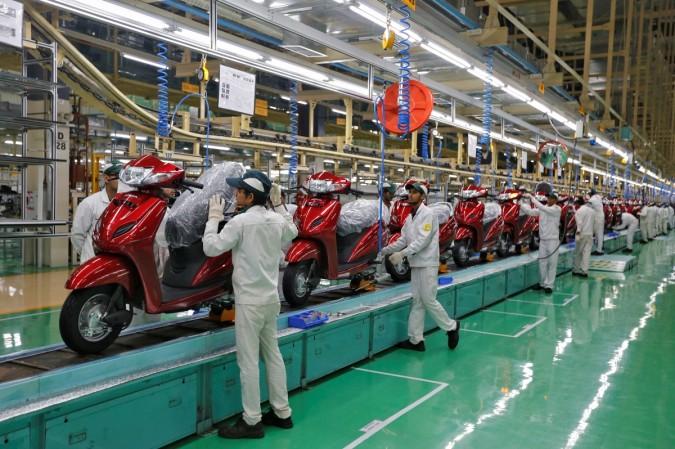
India's manufacturing activity accelerated in November at the fastest pace in 13 months, which is right before Prime Minister Narendra Modi gave a currency shock to the nation last year.
This expansion was driven by a surge in both foreign and domestic demand, also suggesting that the economy is recovering from the cash ban and confusion spurred by the Goods and Services Tax (GST), according to a market survey.
The Nikkei/IHS Markit Manufacturing Purchasing Managers' Index (PMI) in November rose to 52.6 from 50.3 in October. A reading above 50 represents expansion, Reuters reported.
Improving factory activity also pushed manufacturers to hire new employees at the fastest pace in five years on fading effects of the new tax regime introduced in July.
The findings suggest that India is limping back to growth and might soon snatch back its title of the fastest growing major economy in the world in the coming quarters.
"India's manufacturing economy advanced on its path to recovery as disruptions from the recent tax reform (GST) continues to diminish," Aashna Dodhia, economist at IHS Markit told Reuters.
Official data on Thursday also showed that India's economy expanded 6.3 percent year-on-year in the third quarter of 2017, above 5.7 percent in the previous quarter which was the lowest in three years.
Further, the government also said that the economy has shrugged off the impact of two big economic reforms and is also expecting to close the year within the range of 6.75-7.5 percent.
Investment and inventories growth also rebounded, offsetting a slowdown in both private and public spending.
"Growth this quarter indicates that perhaps the impact of two structural reforms is now behind us and hopefully, in the coming quarters, we can look at an upward trajectory. The most significant aspect is the fact that this quarter's positive result is impacted by growth in manufacturing," Finance Minister Arun Jaitley told reporters.

To boost consumer demand, last month, the GST Council headed by the Finance Minister also slashed rates for various fast moving consumer goods (FMCG) products like washing powder, shampoo, chocolates and nutritional drinks with immediate effect.
Soon after that, the council also slashed tax rates for all restaurants to five percent, except the ones located within hotels with tariffs of Rs 7,500 and above and outdoor catering. Earlier, the tax rate was 18 percent for air-conditioned restaurants and 12 percent for non-air-conditioned eateries.
However, following a stronger growth this quarter and rising inflation forecast, the Reserve Bank of India is expected to hold the trigger and keep rates unchanged at its December policy meeting, showed a latest Reuters survey.
The government on the other hand, wants a reduction in the key interest rates in the coming months as it expects inflation to reach 4 percent which is the Central bank's target.
"We expect the RBI to cut policy rates, if not in December then in its next policy review," said a government official.









